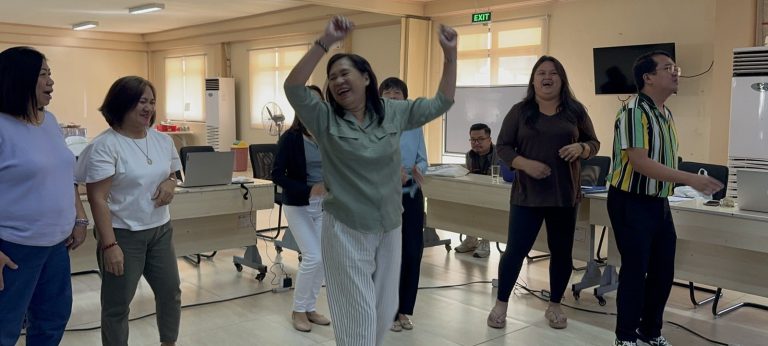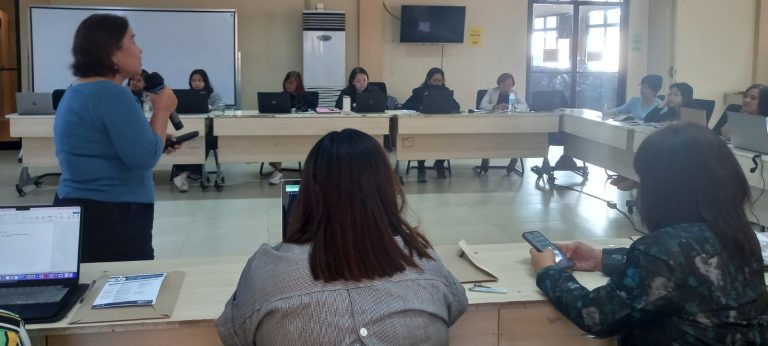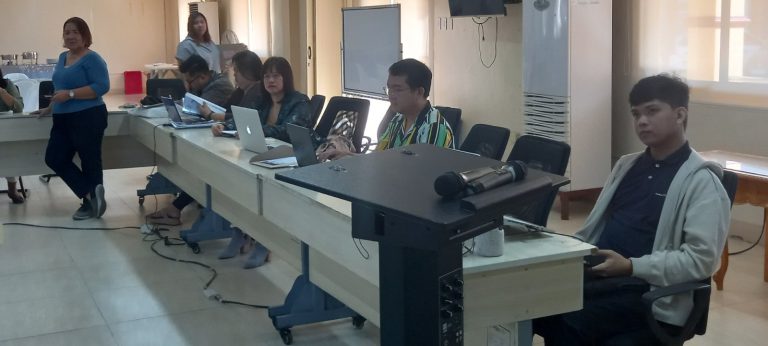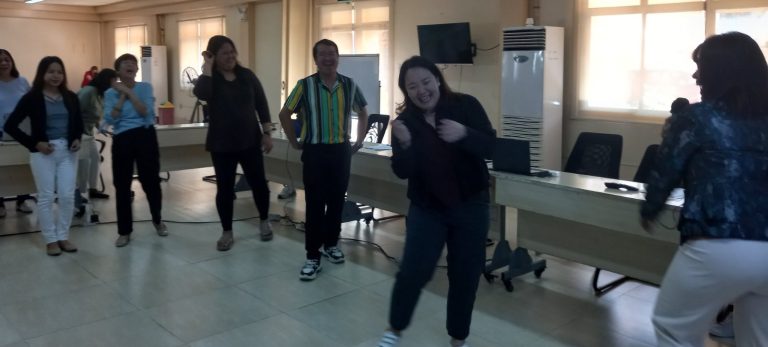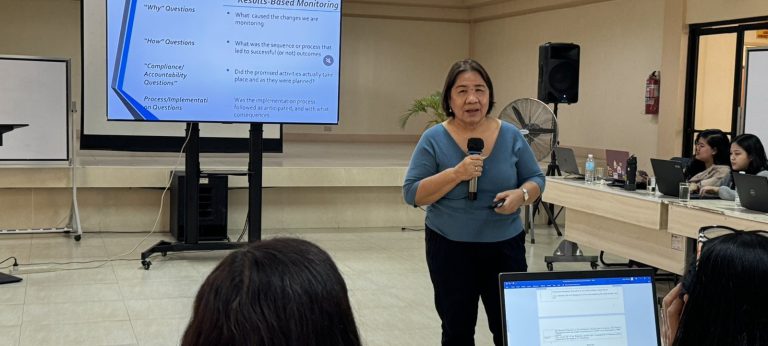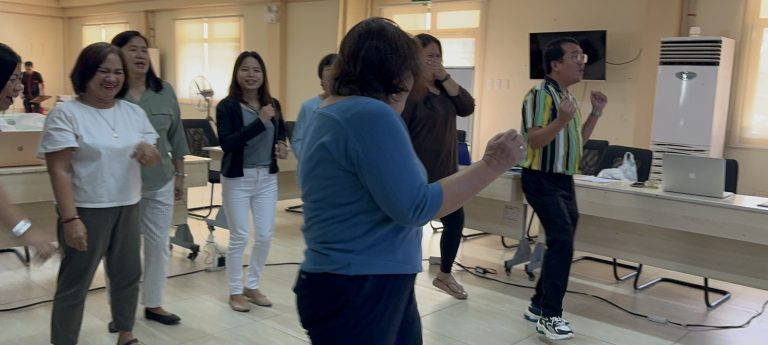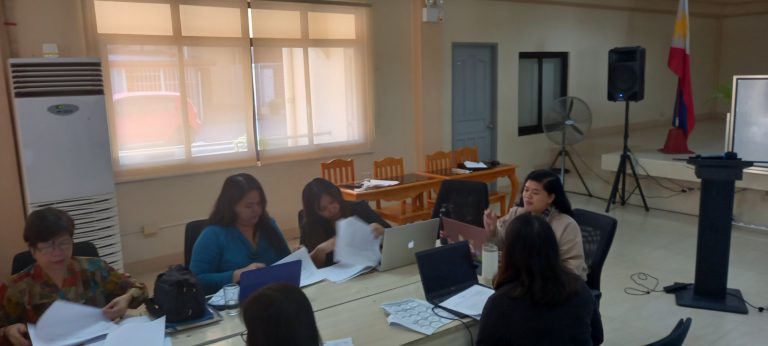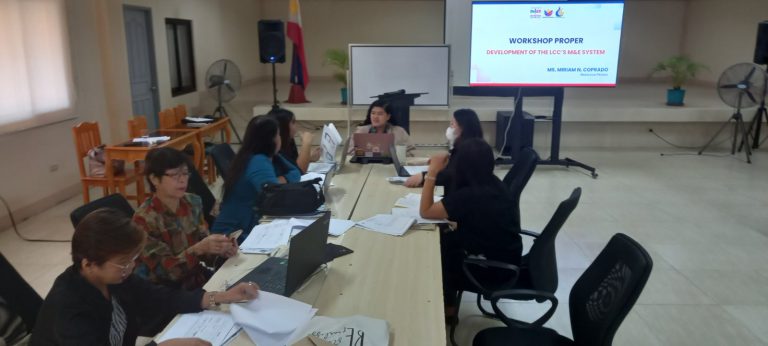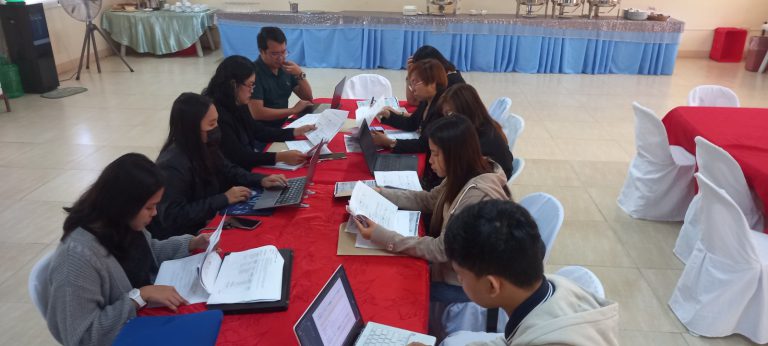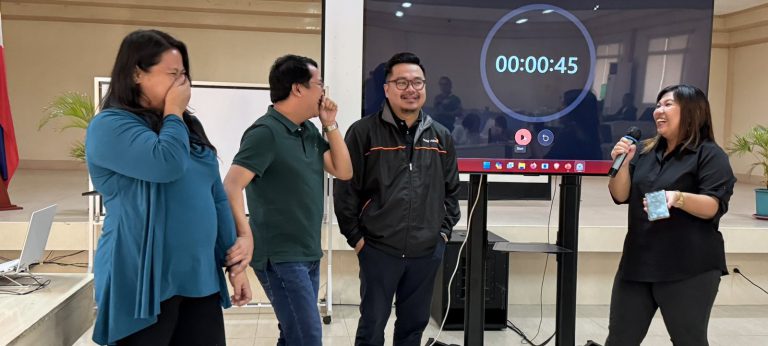Literacy Coordinating Council Convenes for the Workshop on the Development of the M&E System
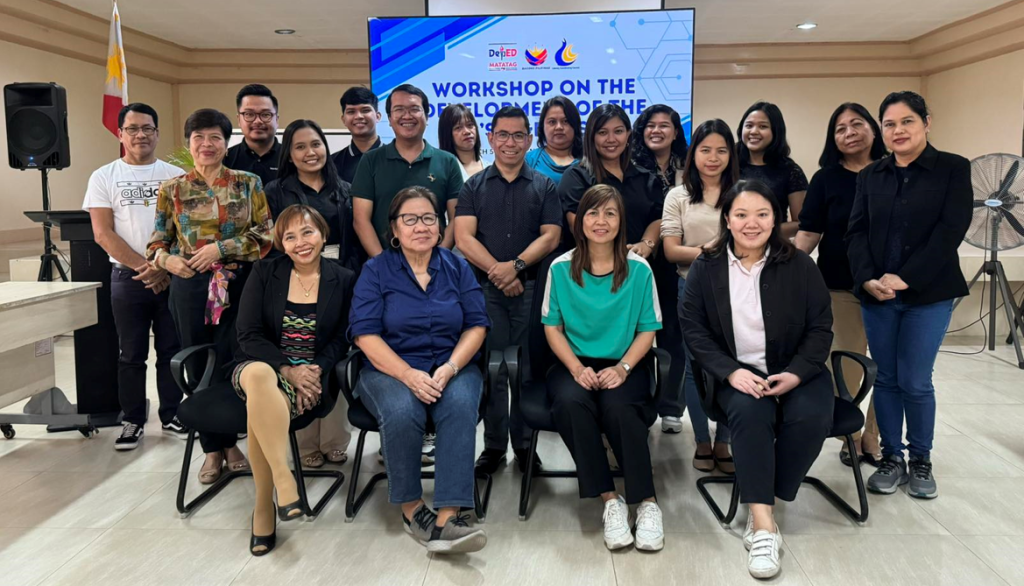
The Literacy Coordinating Council (LCC), through its Secretariat organized the Workshop on the Development of the LCC’s M&E System at the National Educators Academy of the Philippines (NEAP) CALABARZON. LCC member representatives and select participants from various sectors such as DepEd, LGUs, and NGOs were enjoined to meet the following objectives: 1) to present the DepEd Basic Education Monitoring and Evaluation Framework (BEMEF) and discuss its significance in the development and management of LCC’s programs, projects, and activities; 2) to develop the M&E framework for the LCC anchored on BEMEF; and (3) to determine the data requirements, including the tools to be utilized for the LCC’s M&E System.
Under RA 10122, LCC is mandated to formulate measures for the Monitoring and Evaluation of the literacy situation in the country. Considering this mandate, LCC is also tasked to establish and maintain a data bank and information exchange system supportive of the literacy efforts at both national and local levels. Thus, the LCC organized a platform where best practices could be shared and streamlined to forge a viable M&E System that would be instrumental in universalizing literacy in the Philippines. Certainly, Monitoring and Evaluation is a significant aspect of project management, therefore it serves as an enabling mechanism to determine the strengths and weaknesses, failure, and success of a program during and after the implementation process.
The Resource Persons who were invited to facilitate the workshop were Ms. Aurea Jean A. Abad and Ms. Miriam N. Coprado. On the other hand, Ms. Lia Angela Daus and Ms. Evelyn Ralor from DepEd Planning Service – Policy Research and Development Division gave a comprehensive presentation of Basic Education Monitoring and Evaluation Framework (BEMEF). At the onset of the workshop proper, Ms. Abad led the participants in revisiting the LCC Blueprint for Action. This is an action program for the attainment of the Philippines’ literacy goal: universalization of literacy in the country. It functions not only as a strategic framework in developing policies and implementing programs towards the eradication of illiteracy but also serves as a guide for other government agencies, local government units, and partners from the civil society who are considered concerned entities. Ms. Abad pointed out that the basic principles and general strategies of the LCC Blueprint for Action were adopted and suggested to various stakeholders and program partners in literacy work. The attainment of Sustainable Development Goal 4 which is to ensure inclusive and equitable quality education and promote lifelong learning opportunities for all according to the United Nations was also included in the said framework. In addition, three elements are necessary to make this work and these are the following: 1) detailed objectives and implementation strategies; 2) the resources not only financial resources and budgetary appropriations but also the human resources, equipment, technology requirements, technical know-how and expertise; and the 3) timeline of the implementation. Shortly after the very informative discussion, Ms. Coprado gave an overview of the Project Management Cycle. She also tackled important points relative to the development of a Monitoring and Evaluation System or M&E System.
The second day of the workshop began with a management of learning activity facilitated by the LCC Secretariat. It was a joyous experience that infused the energy of the participants before the comprehensive presentation of the introduction to Monitoring and Evaluation by Ms. Coprado. She thoroughly explained the definitions, objectives, and relationship between the Logic Model and Monitoring and Evaluation. She also pointed out that monitoring and evaluation are two separate parts of Project Management, yet these are interrelated strategies to collect data and report the findings on how well the program is performing.
As the main agenda of the workshop, the right steps to undertake to develop a viable M&E System are as follows:
Step 1. Conducting a readiness assessment
Step 2. Choosing outcomes to M&E
Step 3. Selecting key indicators to monitor outcomes
Step 4. Establishing baseline on indicators
Step 5. Selecting results targets
Step 6. Monitoring for results
Step 7. The role of evaluation
Step 8. Reporting and using the findings
Step 9. Sustaining the M&E system within the organization
Ms. Daus and Ms. Relor discussed the BEMEF which was formulated and adopted as DepEd’s guiding document for its operating units across governance levels in the conduct of monitoring and evaluation. The said framework prescribes rules and standards that are supportive of the global and national commitments of DepEd. It also sets the guidelines for the effective and efficient implementation of its programs specifically in delivering basic education in the country which are also aligned in its development plan.
The final leg of the 3-day workshop was spearheaded by Ms. Josephine Babaran from the Philippine Information Agency (PIA) who facilitated the enumeration game.
Then, Ms. Czarina D. Abellonar, Project Development Officer III of the LCC Secretariat, facilitated the workshop for the formulation of the LCC M&E System. She divided the participants into two groups and assigned two pillars of development as part of the Roadmap of the LCC. Group 1 worked on Ilaw (Advocacy, Social Mobilization and Partnerships) and Aruga (Learning and Organizational Development), while Group 2 tackled Yaman (Knowledge Management) and Buklod (Localization of LCC).
Following the presentations, Mr. Enrico R. Mendoza, Head of the LCC Secretariat, provided his insights about the participants’ inputs such as the adoption of best practices in at least 3 years, maintenance of the National Literacy Information System (NLIS) including the utilization rate of the page and content; reconstitution of the Local Literacy Coordinating Council (LLCC) membership due to change of leadership; assessment of the functionality of the LLCC and investment of LGUs to determine the functionality of the LLCC; lobbying for policy development regarding the establishment of LCC as a mandated body and gather policy recommendations and consider literacy development as part of the education development in the Seal of Good Local Governance (SGLG) awards. Moreover, he recommended more engaging advocacy materials and encouraged the Philippine Information Agency to disseminate information through radio initiatives and the like.
In conclusion, Mr. Carlo Niño R. Claro, Education Technological Program Specialist from World Vision, a development partner of the LCC in its quest for eradication of illiteracy and universalization of literacy, shared his impressions about the workshop. He reiterated the importance of a robust M&E system: a strong Monitoring and Evaluation System that is crucial for tracking the program’s progress. He asserted that it is significant in identifying areas of improvement and ensuring the effectiveness of the Philippine literacy programs. He also stressed that collaboration among the council members, government agencies, NGOs, and local stakeholders is a key element to forge a more comprehensive approach to literacy development. Lastly, he highlighted the value of the impact of the program more than the outputs which pertains to the satisfaction rate, efficiency, and effectivity of programs that lead to holistic transformational development of the community and the lives of the family and children beneficiaries.
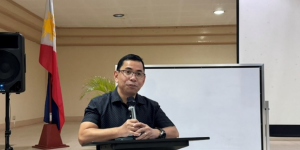
Indeed, the dedication of LCC to develop a comprehensive M&E system is a vital significant step forward. Mr. Mendoza immensely thanked all the participants for their valuable contributions in his closing remarks. “M&E is not an enemy… Rather, it is a friendly tool that may be used in tracking development and performance results… I urge everyone to keep the flames of commitment burning as we passionately advocate for literacy nationwide,” he said. The workshop came to an end but has definitely marked a sense of optimism and a renewed sense of purpose to all the participants who are now equipped to build a better future for our countrymen.
Mr. Enrico R. Mendoza, LCC Secretariat, delivers his closing remarks.
